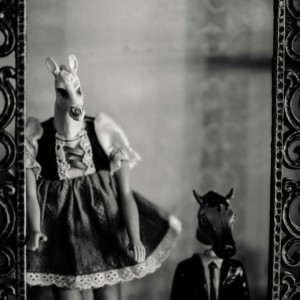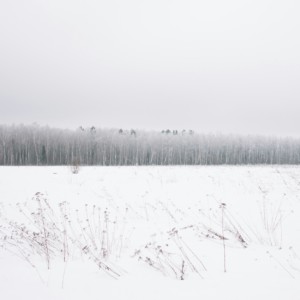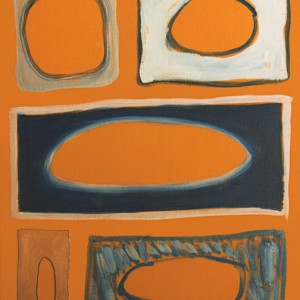‘what has been excavated and interred here’: Transreading Robert Macfarlane’s Underland
Delve deep into below-ground ecologies to write ‘undersongs’ of our own underlands.
‘Yes, for many reasons we tend to turn away from what lies beneath,’ writes Robert Macfarlane in ‘Descending.’ In this course we will deliberately turn toward what lies beneath. Toward ‘what cannot be openly said and seen.’ Against the ‘resolutely flat perspectives.’ In counterpoint to Georges Perec’s ‘Force yourself to see more flatly,’ we will take up Macfarlane’s invitation: ‘Force yourself to see more deeply.’
We will follow the epic geography of Underland: from ‘Descending’ to ‘Surfacing,’ through three Chambers, across Europe and time – reading selected excerpts, taking lead from their verbal arrangements: to consider ‘geology of the bone,’ to become better futurologists, to describe our own trace fossils, to erect vertical cities, to be tender to the dead and ourselves.
Our engagements with below-ground ecologies will be also guided by the writers mentioned by Macfarlane: Helen Mort, Sean Borodale, Walter Benjamin, Italo Calvino, Georges Perec. Additionally, in our attempts to hear and record the ‘undersongs’ of our own underlands, we will be assisted by, among others, angela rawlings, Emily Hasler, Tim Cresswell, Philip Terry.
Participants who do not already have their own copies of Underland will be provided with a PDF version free of charge.
5 fortnightly sessions over 10 weeks, starting 27 Sep 2024. No live chats. Suitable for UK & International students.
Concessions & Accessibility
To apply for a concessionary rate, please send relevant documentation showing your eligibility for one of our concessions to [email protected]; conditions of eligibility are detailed here. If you have any questions, wish to be added to the waiting list of a sold-out course, or require any form of adjustment to access our courses, please email [email protected]. For more information visit our Online Courses page.
Image credit: @Robert Macfarlane
About Elżbieta Wójcik-Leese  View Profile
View Profile
Elżbieta Wójcik-Leese co-curates ‘Transreading’ courses on translocal and hybrid poetries for the Poetry School. She writes with/in English, Polish, and Danish. Her multilingual texts have appeared, among others, in Wretched Strangers: Borders, Movement, Homes (2018), Other Countries: Contemporary Poets Rewiring History (2014), Metropoetica, Poetry and Urban Space: Women Writing Cities (2013), and in such journals as Cordite Poetry Review, Envoi, Island Review, Long Poem Magazine, Modern Poetry in Translation, Poetry Salzburg Review, Projectionist’s Playground, Shearsman, and Tears in the Fence. Her English translations of contemporary Polish poetry have featured in various anthologies, journals and on the London Underground; they can be read at versopolis-poetry.com.
Her selection from Marcin Świetlicki, Night Truck Driver (Zephyr Press, 2020), finalist for the Big Other Book Award for Translation, was longlisted for the 2021 PEN Award for Poetry in Translation. Nothing More (Arc, 2013), which samples Krystyna Miłobędzka, was shortlisted for the 2015 Popescu European Poetry Translation Prize. Marzanna Kielar’s poetry is sampled in Salt Monody (Zephyr Press, 2006). She co-edited Carnivorous Boy Carnivorous Bird: Poetry from Poland (Zephyr Press, 2004) and guest-edited Polish issues of Poetry Wales and Modern Poetry in Translation. She was a co-editor of the peer-reviewed literary translation journal Przekładaniec and a contributing editor at Poetry Wales. Cognitive Poetic Readings in Elizabeth Bishop: Portrait of a Mind Thinking (2010) is based on her research as a Fulbright scholar at the Elizabeth Bishop archives. She has collaborated with the British Council, European Literature Network, Literature Across Frontiers, Polish Cultural Institute, and Scottish Poetry Library. She works at the Centre for Internationalisation and Parallel Language Use, University of Copenhagen. Her micro-blog about geographic and imaginary Norths, poetry, art, translation and translanguaging can be read at facebook.com/elzbieta.wojcikleese. She documents the Northern liminal in photos, cyanotype, ink, stitch, artists’ books and words on Instagram: @elzbietawojcikleese.
"Structured Transreading can be very productive; I’ve come across poets I would otherwise never have read."
 Muses, Messengers, & Promises: Writing Animals
Muses, Messengers, & Promises: Writing Animals Snowfelt: The Invisible Landscape Masterclass
Snowfelt: The Invisible Landscape Masterclass ‘Sardine Trees & Stars’: Transreading Joan Miró
‘Sardine Trees & Stars’: Transreading Joan Miró